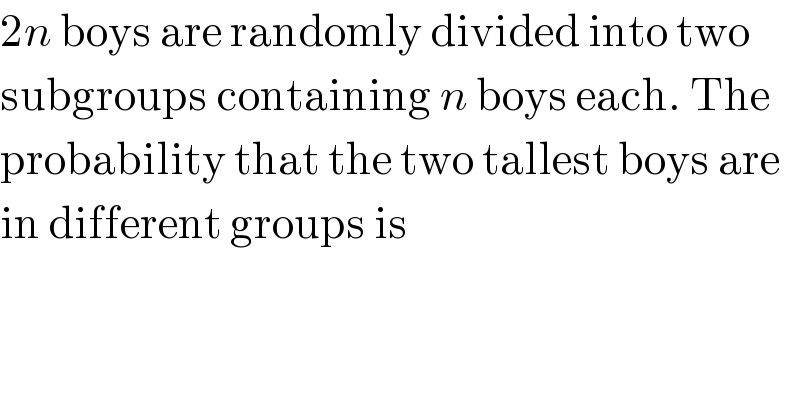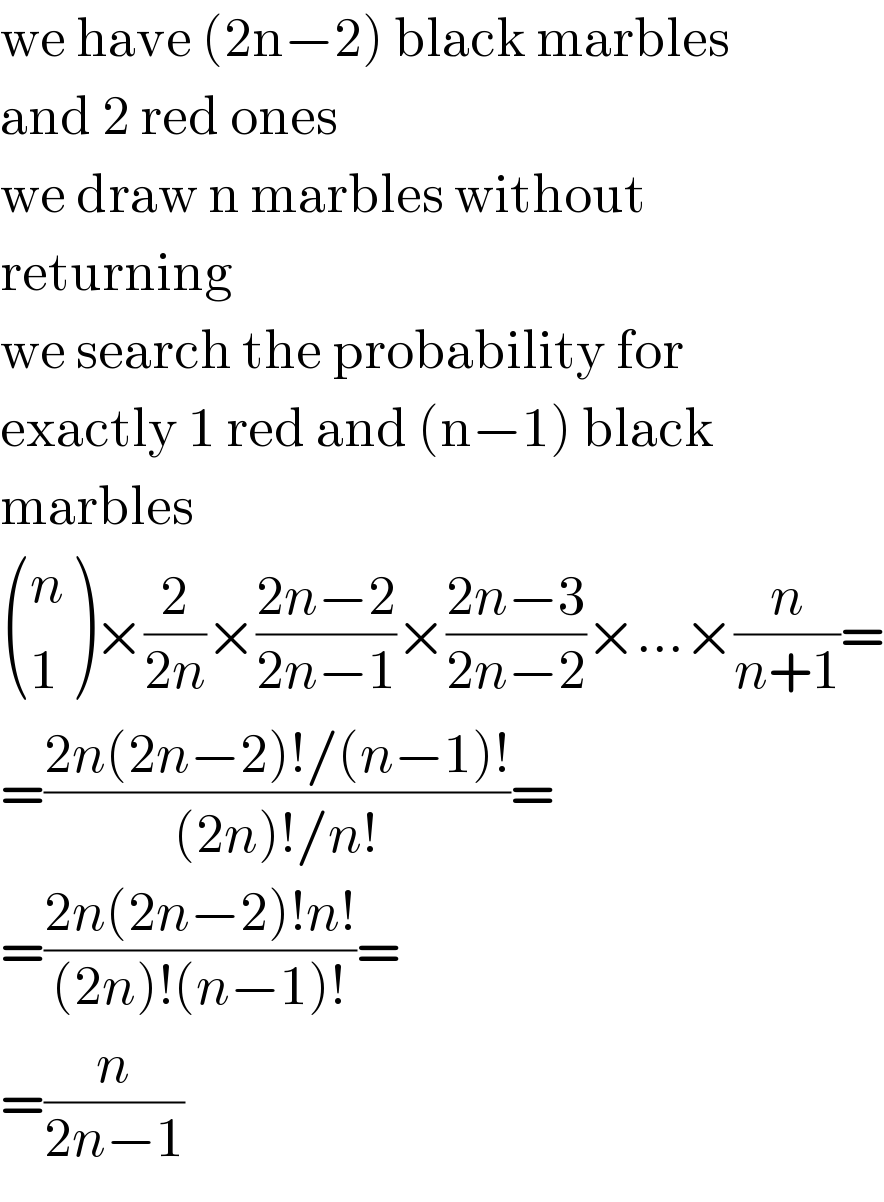
Question Number 31255 by Tip Top last updated on 04/Mar/18

$$\mathrm{2}{n}\:\mathrm{boys}\:\mathrm{are}\:\mathrm{randomly}\:\mathrm{divided}\:\mathrm{into}\:\mathrm{two} \\ $$$$\mathrm{subgroups}\:\mathrm{containing}\:{n}\:\mathrm{boys}\:\mathrm{each}.\:\mathrm{The} \\ $$$$\mathrm{probability}\:\mathrm{that}\:\mathrm{the}\:\mathrm{two}\:\mathrm{tallest}\:\mathrm{boys}\:\mathrm{are} \\ $$$$\mathrm{in}\:\mathrm{different}\:\mathrm{groups}\:\mathrm{is} \\ $$
Answered by MJS last updated on 05/Mar/18

$$\mathrm{we}\:\mathrm{have}\:\left(\mathrm{2n}−\mathrm{2}\right)\:\mathrm{black}\:\mathrm{marbles} \\ $$$$\mathrm{and}\:\mathrm{2}\:\mathrm{red}\:\mathrm{ones} \\ $$$$\mathrm{we}\:\mathrm{draw}\:\mathrm{n}\:\mathrm{marbles}\:\mathrm{without} \\ $$$$\mathrm{returning} \\ $$$$\mathrm{we}\:\mathrm{search}\:\mathrm{the}\:\mathrm{probability}\:\mathrm{for} \\ $$$$\mathrm{exactly}\:\mathrm{1}\:\mathrm{red}\:\mathrm{and}\:\left(\mathrm{n}−\mathrm{1}\right)\:\mathrm{black} \\ $$$$\mathrm{marbles} \\ $$$$\begin{pmatrix}{{n}}\\{\mathrm{1}}\end{pmatrix}×\frac{\mathrm{2}}{\mathrm{2}{n}}×\frac{\mathrm{2}{n}−\mathrm{2}}{\mathrm{2}{n}−\mathrm{1}}×\frac{\mathrm{2}{n}−\mathrm{3}}{\mathrm{2}{n}−\mathrm{2}}×...×\frac{{n}}{{n}+\mathrm{1}}= \\ $$$$=\frac{\mathrm{2}{n}\left(\mathrm{2}{n}−\mathrm{2}\right)!/\left({n}−\mathrm{1}\right)!}{\left(\mathrm{2}{n}\right)!/{n}!}= \\ $$$$=\frac{\mathrm{2}{n}\left(\mathrm{2}{n}−\mathrm{2}\right)!{n}!}{\left(\mathrm{2}{n}\right)!\left({n}−\mathrm{1}\right)!}= \\ $$$$=\frac{{n}}{\mathrm{2}{n}−\mathrm{1}} \\ $$
